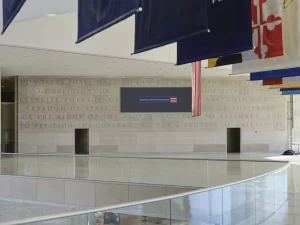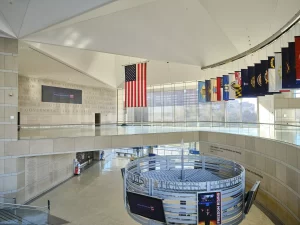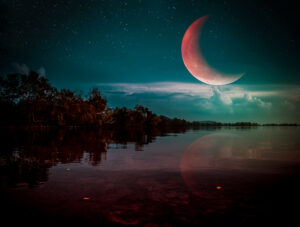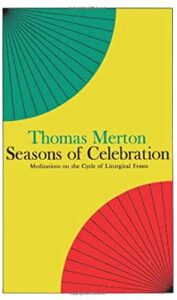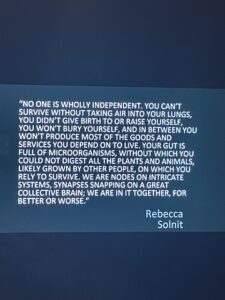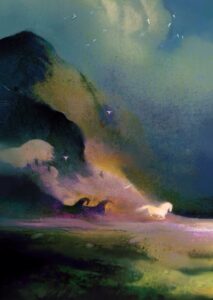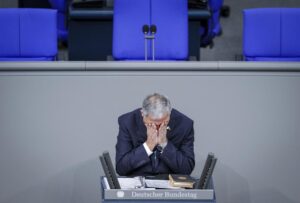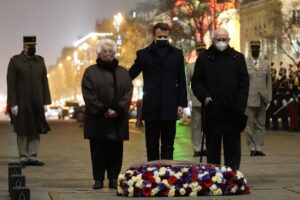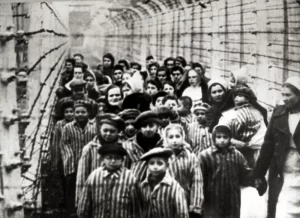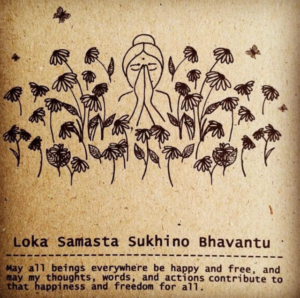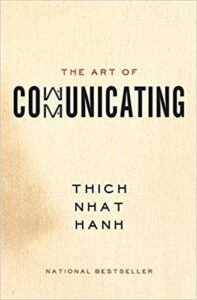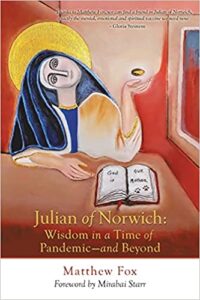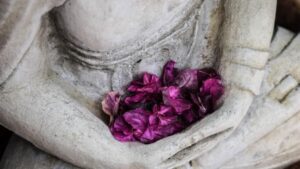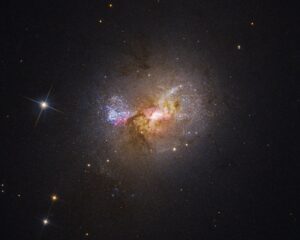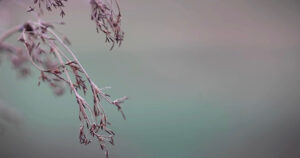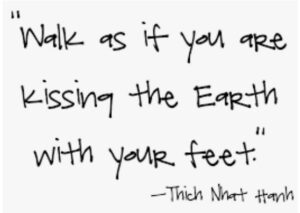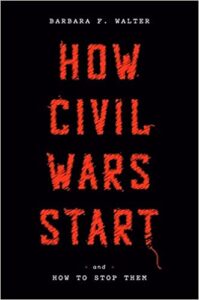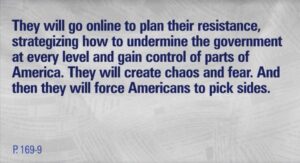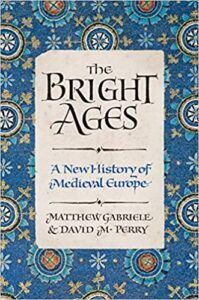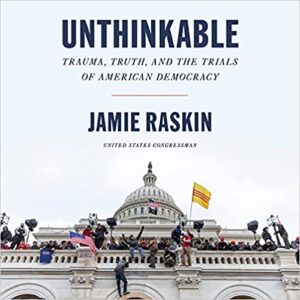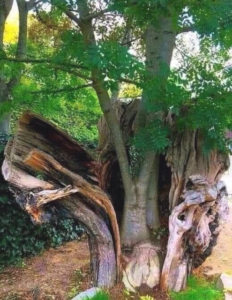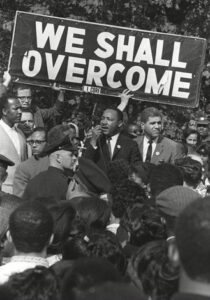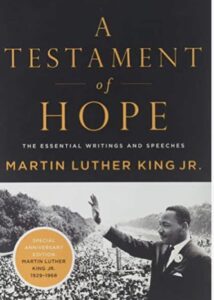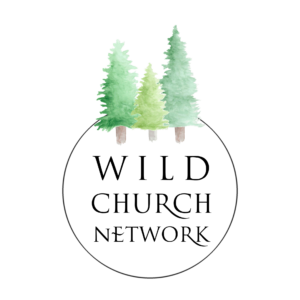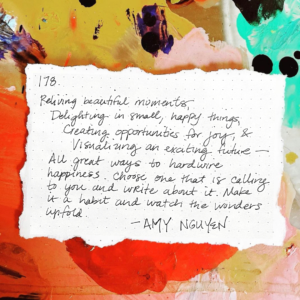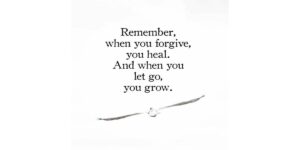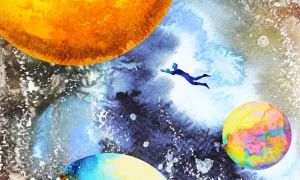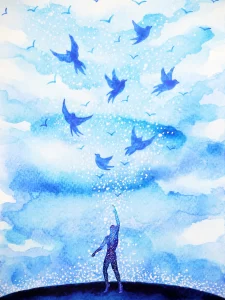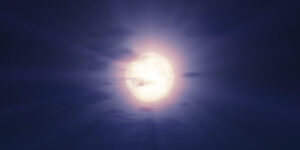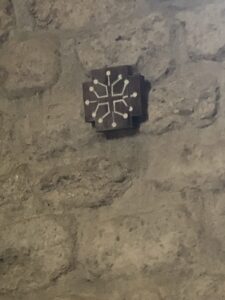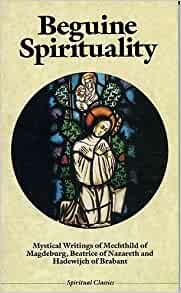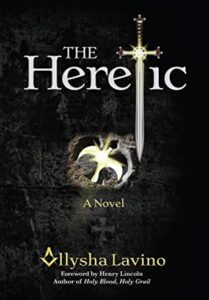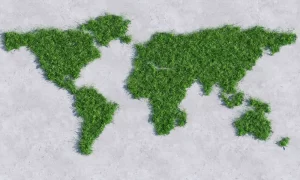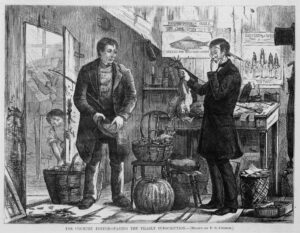A new home.
January 31, 2022And a ’50-ton’ move.
N
E
W
S
E
U
M
The National Constitution Center in Philadelphia announced that a 50-ton marble tablet, engraved with the 45 words of the First Amendment, has been moved successfully 150 miles from the former Newseum façade.
- The tablet now spans a 100-foot-wide wall on the Center’s Grand Hall Overlook.
An unveiling ceremony will be held this spring, along with a First Amendment symposium featuring leading experts and scholars.
The tablet, made of Tennessee pink marble, was engraved and erected in 2007 at the Newseum’s former home at 555 Pennsylvania Ave., and it was seen for years during the opening of ABC’s “This Week.”
- After the museum closed in 2019, the Freedom Forum donated the tablet to the National Constitution Center.
[AXIOS]
Congress shall make no law respecting an establishment of religion, or prohibiting the free exercise thereof; or abridging the freedom of speech, or of the press; or the right of the people peaceably to assemble, and to petition the Government for a redress of grievances.
I was able to visit the NEWSEUM in DC shortly before they permanently closed their doors due to a financial shortfall. It was spectacular and inspiring; I spent two full days exploring the exhibits, while wondering again and again how such an important and needed tapestry of history could be closing. Perhaps more exhibits will be shared, like this spectacular and poignant marble tablet. -dayle
Sunday, January 30th, 2022
January 30, 2022New Moon in Aquarius is Monday, January 31 at 10:46PM Mountain Standard Time (MST)
Also known as the Black Moon, this Aquarius moon opens many possibilities for change, innovation, new ways of thinking, and an expansion of consciousness. Curiosity and questioning the status quo as well as a willingness to dig deep and root out anything that is keeping you imprisoned in any limitation is the way to embrace the gifts of this new moon. It will be a combination of highs and lows as you navigate emotional content, the past, present and future. Make it personal. There is no room for fear, blame or regret. You have the authority to make the time a productive, higher-centered experience, or get totally mired in depressive thoughts of futility and pessimism. Your choice. We also suggest that you take disciplined time to do your practices and set your intentions from the place of gratitude. Compassion goes a long way as well. What if you were emotionally free?
Blessings,
Lena
Power Path
Thomas Merton
A Need for Truth
“Man today has lost consciousness of a need for truth. What is sought is power. Truth is made to serve the ends of power. Truth is of no value unless it is expedient.
When truth is not expedient, then it is deliberately manipulated and twisted to serve the aims of the powerful.
Objective truth is considered irrelevant. It is derided by the powerful, who can change truth to suit themselves, and and bend it this way and that for the sake of ambition and fortune.”
–Seasons of Celebration, 1965
Seneca
As an adult, many lives are lived.
You belong.
January 29, 2022Fellowship is a kind of belonging that isn’t based on status, achievement, or gender, but instead is based on a deep belief that everyone matters, everyone is welcome, and everyone is loved, no conditions, no exceptions.
—Brian McLaren
Center for Action and Contemplation
People on all parts of the continuum of gender identity and expression, including those who are gay, bisexual, heterosexual, transgender, cisgender, queer folks, the sexually active, the celibate, and everyone for whom those labels don’t apply. Response: I belong.
People of African descent, of Asian descent, of European descent, of First Nations descent in this land and abroad, and people of mixed and multiple descents and of all the languages spoken here. Response: I belong.
Bodies with all abilities and challenges. Those living with any chronic medical condition, visible or invisible, mental or physical. Response: I belong.
People who identify as activists and those who don’t. Mystics, believers, seekers of all kinds. People of all ages. Those who support you to be here. Response: I belong.
Your emotions: joy, fear, grief, contentment, disappointment, surprise, and all else that flows through you. Response: I belong.
Your families, genetic and otherwise. Those dear to us who have died. Our ancestors and the future ones. The ancestors who lived in this land, in this place, where these buildings are now . . . we honor you through this work that we are undertaking. Response: I belong.
People who feel broken, lost, struggling; who suffer from self-doubt and self-judgment. Response: I belong.
All beings that inhabit this earth: the two-legged, the four-legged, winged and finned, those that walk, fly, and crawl, above the ground and below, in air and water. Response: I belong.
Friday, January 28, 2022
January 28, 2022No one knows your path but you. The mystery belongs to you only, unveiled by you in pieces through time, through the span of your life. Your way is innate. Your navigation is inside-out. -Jennifer Rose
@SeeTheRoses
JANUARY 28, 1986
We Interrupt This Broadcast
The Challenger 7
“Obviously a major malfunction…”
“Today is a day for mourning and remembering.” -Ronald Reagan
[Image: history.com]
The Space Shuttle Challenger flew nine missions into space. But its fateful tenth mission, which lasted only 73 seconds, ensured its tragic place in history. On the morning of January 28, 1986, a crew of seven boarded the Challenger, including a New Hampshire grade school teacher named Christa McAuliffe, representing the aspirations of so-called ‘ordinary’ citizens to journey into space. It was an adventure vicariously shared by millions of Americans through television, as the Challenger lifted off at 11:38a.m. from the Kennedy Space Center in Florida and hurtled majestically into the sky. But less than two minutes later, horror struck in full view of all who watched.
Contributors:
John Zarrella, former CNN Miami Bureau Chief
Tony Clark, former national correspondent for CNN
Beth O’Connell, former coordinator for the NBC Boston Bureau
William Harwood, CBS News space analyst
Steve Nesbitt, the voice of NASA Mission Control
https://podcasts.apple.com/us/podcast/the-challenger-disaster/id1573079095?i=1000544825817
“From six-time New York Times bestselling author Joe Garner, and based on his groundbreaking multimedia book, “We Interrupt This Broadcast,” comes a 12-episode, audio docu-series hosted by broadcast legend Bill Kurtis, and narrated by NBC’s Brian Williams. Each episode unfolds with the brisk pace and tone of a thriller while presenting an in-depth look into the reporting of, and reaction to, the extraordinary events that became the benchmarks of the American story. It is said that “breaking news” is the first draft of history. “We Interrupt This Broadcast” marks the first time the stories of these historical broadcast news events are told exclusively by the broadcasters and TV journalists whose work created those drafts in real-time.
Hosted by Bill Kurtis & Narrated by Brian Williams.
Holocaust Remembrance Day 🕯
January 27, 2022Today marks the 77th anniversary of the liberation of the Nazi death camp Auschwitz on Jan. 27, 1945.
Wreaths were placed in Berlin today at the Memorial to the Murdered Jews of Europe.
President Biden said: “Today, we attempt to fill a piercing silence from our past — to give voice to the six million Jews who were systematically and ruthlessly murdered by the Nazis and their collaborators.” [AXIOS]
World remembers Holocaust as antisemitism rises in pandemic
WARSAW, Poland (AP) — Survivors recalled their agony to a world they fear is forgetting, Israel’s parliamentary speaker wept in the German parliament and politicians warned of a resurgence of antisemitism on Thursday’s International Holocaust Remembrance Day.
The day falls on the anniversary of the liberation by Soviet troops of Auschwitz-Birkenau, the most notorious of the death camps where Nazi Germany carried out its Final Solution seeking to murder the Jewish people of Europe.
At the memorial site in Poland, which was subjected to a brutal German occupation during World War II, a small number of survivors gathered in an auditorium. Attendance at the yearly event was sharply curtailed amid Europe’s coronavirus surge. Others joined online.
Nazi German forces killed 1.1 million people at Auschwitz, most of them Jews, but also Poles, Roma and others.
[6,000,000 were murdered in concentration camps during WWII; 1,000,000 were children.]
Mickey Levy, Speaker of the Knesset, reacts during the commemoration of the “Day of Remembrance of the Victims of National Socialism” in the German Bundestag, Berlin, Thursday, Jan.27, 2022. (Kay Nietfeld/dpa via AP)
Halina Birenbaum, a 92-year-old Polish-born poet who lives in Israel, recalled her suffering remotely. She was 10 when the Germans invaded and occupied Poland in September 1939, and was 13 when she was taken to Auschwitz-Birkenau after being led out of the gas chamber of the Majdanek camp thanks to a malfunction.
“I saw masses of the powerful but arrogant army of Nazi Germany as they marched cruelly, victoriously, into the devastated and burning streets of Warsaw,” she recalled.
“The countless experiences of infinite suffering on the brink of death are already a distant, unimaginable story for new generations,” she said.
Commemorations everywhere took place amid a rise of antisemitism that gained traction during lockdowns as the coronavirus pandemic has exacerbated hatred online.
German parliament speaker Baerbel Bas said the pandemic has acted “like an accelerant” to already burgeoning antisemitism.
French President Emmanuel Macron, center, flanked by Auschwitz concentration camp survivor Esther Senot, second left, and Bergen-Belsen concentration camp survivor Victor Perahia, right, stand at attention at the Tomb of the Unknown Soldier under the Arc de Triomphe to mark the International Holocaust Remembrance Day, Thursday, Jan. 27, 2022 in Paris. . Holocaust survivors and politicians warned about the resurgence of antisemitism and Holocaust denial as the world remembered Nazi atrocities and commemorated the 77th anniversary of the liberation of the Auschwitz concentration camp on Thursday. (AP Photo/Thibault Camus, Pool)
Miejsce Pamięci i Muzeum Auschwitz-Birkenau
Official recording from the LIVE stream of the commemoration event for the 77th Anniversary of the Liberation of Auschwitz (January 27, 2022, 16 CET).
‘Holocaust Remembrance Day was designated by United Nations General Assembly resolution 60/7 on 1 November 2005. The resolution came after a special session was held earlier that year on 24 January to mark the 60th anniversary of the liberation of the Nazi concentration camps and the end of the Holocaust.’ [wikipedia]
From Marianne Williamson:
Dear God,
On this day of painful remembrance,
Please bless the souls of those who died in the Holocaust.
Bless the souls of those who were targeted,
and bless the souls of those who helped them.
Heal the hearts of those who carry the scars of evil,
and awaken our hearts and strengthen us
for the work that we must do today.
Help us
to create a world in which evil such as that
will occur no more.
Amen
In the words of Elie Weisel, a survivor of Holocaust who dedicated his life to our deeper understanding of its significance,
“For the dead and the living, we must bear witness. Not only are we responsible for the memories of the dead, we are responsible for what we do with those memories.”
Today, we must do a lot with them. Today may we all bear witness.
Auschwitz Memorial Podcast
“The official podcast of the Auschwitz Memorial. The history of Auschwitz is exceptionally complex. It combined two functions: a concentration camp and an extermination center. Nazi Germany persecuted various groups of people there, and the camp complex continually expanded and transformed itself. In the podcast “On Auschwitz,” we discuss the details of the history of the camp as well as our contemporary memory of this important and special place.”
https://podcasts.apple.com/us/podcast/on-auschwitz/id1568273147
Online lessons: http://lesson.auschwitz.org
From the Auschwitz Memorial, Saturday, January 29th, 2022
29 January 1936 | A French Jewish boy, Michel Ejzenberg, was born in Paris. He arrived at #Auschwitz on 26 August 1942 in a transport of 1,000 Jews deported from Drancy. He was murdered in a gas chamber after selection.
Please follow them on social media. Everyday, they post a photo on the birthday of a prisoner from the concentration camps during WWII. On Twitter: @AuschwitzMuseum
We honor their memory, and remember their promise.
-dayle
January 26th, 2022
January 26, 2022‘Now I’m wondering: is there a way to disentangle the story from the information? Yes, we need to take care of ourselves and each other. Yes, we need to stay aware and intentional, particularly considering the most vulnerable among us. But is there a way to do it with less ego and more observing tenderness?
It turns out, the interpretation of life is relentless. The suspension of interpretation, while brief and groundless, can be a sweet relief. I want less ego-building exercises and more compassion experiments in my life moving forward. I want less roller coasters and more clouds. I want less fear and more love’ -Courtney Martin
Courtney E. Martin is an American feminist, author, speaker, and social and political activist.
Thich
Nhat
Hahn
The Four Elements of Right Speech
‘Loving, truthful speech can bring a lot of joy and peace to people. But producing loving speech takes practice because we aren’t used to it. When we hear so much speech that causes craving, insecurity, and anger, we get accustomed to speaking that way. Truthful, loving speech is something we need to train ourselves in.
In Buddhism there’s a practice called the Ten Bodhisattva Trainings. Four of these 10 relate to Right Speech. A bodhisattva is an enlightened being who has dedicated his or her life to alleviating the suffering of all living beings.
A bodhisattva is someone who can speak with gentle, loving speech and who can listen with compassion.
The four bodhisattva guidelines of the Ten Bodhisattva Trainings for Right Speech:
- Tell the truth. Don’t lie or turn truth upside down.
- Don’t exaggerate.
- Be consistent. This means no double-talk: speaking about something in one way to one person and in an opposite way to another for selfish or manipulative reasons.
- Use peaceful language. Don’t use insulting or violent words, cruel speech, verbal abuse, or condemnation.
When we don’t, repercussions are brutal and, sometimes, irreparable. -dayle
‘Our suffering has been trying to communicate with us, to let us know it is there, but we have spent a lot of time and energy ignoring it.
We know that the suffering inside us contains the suffering of our fathers, our mothers, and our ancestors.
Our suffering reflects the suffering of the world. Discrimination, exploitation, poverty, and fear cause a lot of suffering in those around us. Our suffering also reflects the suffering of others.
If we understand our own suffering it will become much easier for us to understand the suffering of others and the of the world.
But unless we can listen to and acknowledge our own suffering, we will not really be able to help.’
On Being.
Remembering Thich Nhat Hanh, Brother Thay
‘The Venerable Thich Nhat Hanh, revered Zen master, teacher, and poet, died on January 22, 2022, in his native Vietnam. Brother Thay, as he was known by his community and students, transmuted what he had experienced of chaos and bloodshed in his country and his life into an ability to speak with equal measures directness and compassion to the many conflicts and bewilderments of contemporary life. Martin Luther King Jr. nominated him for the Nobel Peace Prize. He was a great teacher of the wonderful practice of “walking meditation.” He taught a way of living to face suffering, fear, and violence inside and beyond ourselves and yet to become “fresh, solid, and free.” Krista sat with him for this rare conversation in the early years of this show, and it has touched many. It is astonishing to re-experience the deep, enduring wisdom this monk leaves for our world now.”
Host Krista Tippett.
Open table.
Father Richard Rohr, Center for Action and Contemplation:
God’s major problem in liberating humanity has become apparent to me as I consider the undying recurrence of hatred of the other, century after century, in culture after culture and religion after religion.
Can you think of an era or nation or culture that did not oppose otherness? I doubt there has ever been such a sustained group.
It seems we ordinary humans must have our other! It appears we don’t know who we are except by opposition and exclusion. “Where can my negative energy go?” is the enduring human question; it must be exported somewhere. Sadly, it never occurs to us that we are the negative energy, which then sees and also creates that negative energy in others.
The ego refuses to see this in itself. Seeing takes foundational conversion from the egoic self and most have not undergone that transformation. We can only give away the goodness (or the sadness) that we ourselves have experienced and become.
“I rest in the grace of the world and I’m free.”
Wendell Berry, born August 5th, 1934, is an American novelist, poet, essayist, environmental activist, cultural critic, and farmer. In 2015 he became the first living writer to be inducted into the Kentucky Writers Hall of Fame. [wikipedia]
Thomas Merton
1965
Conjectures of a Guilty Bystander
“I pray to have a wise heart, and perhaps the rediscovery of Lady Julian of Norwich will help me. I took her book with me on a quiet walk among the cedars. She is a true theologian with greater clarity, depth, and order than Saint Teresa: She really elaborates, theologically, the content of her revelations. She first experienced, then thought, and the thoughtful deepening of her experience worked it back into her life, deeper and deeper, until her whole life as a recluse at Norwich was simply a matter of getting completely saturated in the light she had received all at once, in the ‘shewings,’ when she thought she was going to die.
One of her most telling and central convictions is her orientation to what might be called an eschatological secret, the hidden dynamism which is at work already and by which ‘all manner of thing shall be well.’
To have a ‘wise heart,’ it seems to me, is to live centre on this dynamism and this secret hope…this hoped-for secret. The wise heart lives in Christ (consciousness).”
p. 44
“…we are part of empires today that are killing rainforests and oceans and countless species […] We engage in the killing of the Christ when we engage in the killing of others who are all ‘other Christs.’
Those others may be other human beings or generations to come of species of animals, birds, bees, finned ones. Standing by while global warming happens is killing the Christ. Ecocide is a form of killing Christ. This is what it means to recognize…as Julian does…that ‘Christ too was part of nature.'”
p. 46
“One hundred yeas before Mechtild, Hildegard of Bingen (1098-1181) tells us that ‘divinity is…like a wheel, a circle, a whole, that can neither be understood, nor divided, nor begun, nor ended.’ She speaks of our relationship to the divine as something round and compassionate when she tells us we are ‘surrounded with the roundness of divine compassion.'”
More from Thomas Merton:
“Man has lost Dante’s vision of that ‘love which moves the sun and other stars,’ and in so doing has lost the power to find meaning in the world.
Yet, though humans have acquired the power to do almost anything, have at the same time lost the ability to orient their lives toward a spiritual goal by the things that they do.”
[Image: NASA]
Saturday, January 22, 2022
January 22, 2022The Earth is everywhere. You may be used to thinking of the Earth as only the ground beneath your feet. But the water, the sea, the sky, and everything around us comes from the Earth. Everything outside us and everything inside us comes from the Earth.
—Thich Nhat Hanh
[Image: Center for Action and Contemplation]
“Thank you” is a simple phrase, but one that carries a lot of meaning. So many people act in ways big and small each day that help others for no expected monetary or other return other than the satisfaction that comes from the act itself.
Inn times of struggle, sadness, and fear, let us all remember the helpers in the world, and try to be helpers to others. Let us be kind and generous. And let us not take all that is good out there for granted. -Dan Rather
For our ancestors.
Mitákuye Oyás’iŋ
“The world is not a problem to be solved; it is a living being to which we belong. The world is part of our own self and we are a part of its suffering wholeness.”
—Llewellyn Vaughan-Lee
From Father Richard Rohr:
“Our very suffering now, our condensed presence on this common nest that we have largely fouled, will soon be the one thing that we finally share in common. It might well be the one thing that will bring us together politically and religiously. The earth and its life systems, on which we all entirely depend might soon become the very things that will convert us to a simple lifestyle, to necessary community, and to an inherent and universal sense of reverence for the Holy. We all breathe the same air and drink the same water. There are no Jewish, Christian, or Muslim versions of these universal elements. All water is “holy water” even before the benefit of a priest’s waved hand. It is always and everywhere two parts hydrogen and one part oxygen, and voilà—we have the absolute miracle of liquid water, absolutely necessary for all that lives.
This earth indeed is the very Body of God, and it is from this body that we are born, live, suffer, and resurrect to eternal life. Either all is God’s Great Project, or we may rightly wonder whether anything is.”
And…
Francis of Assisi called animals “Sister” and “Brother” and viewed humans as one part of a wider family of creation. Franciscan writers Ilia Delio, Keith Douglass Warner, and Pamela Wood recommend adapting a historic Christian practice of “examination of conscience” to focus on how we have harmed or helped our relationships with the Earth:
- Do I seek to eliminate from the world whatever keeps all creatures from their full development intended by their Creator: pollution, greed, overconsumption, loss of habitat, disease, war, extinction of species, oppressive laws and structures? . . .
- Have I encouraged others to take care for creation seriously? . . .
January 21, 2022
January 21, 2022Thay.
1926-2022
From his community at Plum Village in France:
With a deep mindful breath, we announce the passing of our beloved teacher, Thay Nhat Hanh, at 00:00hrs on January 22, 2022 at Từ Hiếu Temple in Huế, Vietnam, at the age of 95.
Thay has been the most extraordinary teacher, whose peace, tender compassion, and bright wisdom has touched the lives of millions. Whether we have encountered him on retreats, at public talks, or through his books and online teachings–or simply through the story of his incredible life–we can see that Thay has been a true bodhisattva, an immense force for peace and healing in the world. Thay has been a revolutionary, a renewer of Buddhism, never diluting and always digging deep into the roots of Buddhism to bring out its authentic radiance.
Thay has opened up a beautiful path of Engaged and Applied Buddhism for all of us: the path of the Five Mindfulness Trainings and the Fourteen Mindfulness Trainings of the Order of Interbeing. As Thay would say, “Because we have seen the path, we have nothing more to fear.” We know our direction in life, we know what to do, and what not to do to relieve suffering in ourselves, in others, and in the world; and we know the art of stopping, looking deeply, and generating true joy and happiness.
Now is a moment to come back to our mindful breathing and walking, to generate the energy of peace, compassion, and gratitude to offer our beloved Teacher. It is a moment to take refuge in our spiritual friends, our local sanghas and community, and each other.
We invite you to join our global community online, as we commemorate Thay’s life and legacy with five days of practice and ceremonies broadcast LIVE from Hue, Vietnam and Plum Village, France, starting on Saturday January 22nd. Please see our website for more details coming shortly: www.plumvillage.org/memorial
Let us each resolve to do our best over the coming days to generate the energy of mindfulness, peace, and compassion, to send to our beloved Teacher.
Over the coming hours on the Plum Village website, we will publish some inspirational chants, texts, and mindfulness practice resources, to support you to come together with your local sangha to generate a collective energy of mindfulness and compassion, and create your own ceremony or session in tribute to our Teacher. As Thay has always taught, nothing is more important than brotherhood and sisterhood, and we all know the power of collective energy.
We invite you to share your messages of gratitude or personal transformation and healing on our website: plumvillage.org/gratitude-for-thich-nhat-hanh
With love, trust, and togetherness,
The Monks and Nuns of Plum Village, France
Thích Nhất Hạnh
Gautier Capuçon
Hymne à l’amour
Édith Piaf/Marguerite Monnot – Paris Tour Eiffel
♡
Is now like then?
January 18, 2022Sound familiar?
“To control information is to control the world. This innovative history reveals how, across two devastating wars, Germany attempted to build a powerful communication empire―and how the Nazis manipulated the news to rise to dominance in Europe and further their global agenda.”
“Information warfare may seem like a new feature of our contemporary digital world. [And FOX media/Rupert Murdoch.] But it was just as crucial a century ago, when the great powers competed to control and expand their empires. In News from Germany, Heidi Tworek uncovers how Germans fought to regulate information at home and used the innovation of wireless technology to magnify their power abroad.”
pp. 3-4:
“In 1926, 90% of all newspapers had no correspondents abroad or in Berlin. They received all their national and international news through news agencies or syndicate services. Today, we worry about whether Facebook or Google hold monopolies over information provision. New agencies exerted an arguable even greater grasp over national and international news in the first half the 20th Century.
(Always follow the money…corporate owned media. -dayle)
p. 229:
“In the second half of the 20th century, newspaper ownership seemed like license to print money. Newspapers averaged annual returns of in the United States. Some newspapers generated profits of 30%. In comparison, grocery store profits were in the 2% range and department stores around 4%. In non-exceptional periods, when profits are hard to come by, companies become more reliant on the state or more susceptible to outside control The problem of profits has long made news firms likelier to participate in business arrangements like cartels and monopolies as well as more open to outside influences..
p. 231:
“When elites no longer believe in upholding democratic institutions, a free press alone could not stop a democracy’s disintegration. Democracy can die in full daylight, and has done before.”
[The book, 2019, has received the Fraenkel Prize from the Wiener Holocaust Library and the Ralph Gomory Prize from the Business History Conference and the Alfred P. Sloan Foundation.]
Sage Publication Journals
https://journals.sagepub.com/doi/full/10.1007/s12290-014-0315-5
[2014]
Economic Crisis and Political Extremism in Europe: From the 1930s to the Present
by, Antonis Klapas
Historical experience shows that when economic conditions remain bad for a significant period of time people tend to become more radical as far as their electoral behaviour is concerned. However, no matter how strong the linkage between economic crisis and the rise of political extremism might be, economic crisis is not the only factor to be taken into account when analysing the phenomenon of political extremism, as other parameters (historical, social and so on) are also important.
The economic crisis of the 1930s had a profound effect on European politics. The vicious circle of underdevelopment, unemployment and poverty that started in 1929 created massive social problems and thus favoured the strengthening of extremist parties, especially far-right ones (Table 1). The case of Germany was probably the most characteristic and definitely the most important one as far as its long-term consequences were concerned. Before 1929 Adolf Hitler’s National Socialist party was nothing more than a marginal political force. In the German federal elections of May 1928 they won only 2.63 % of the vote. Just two and a half years later, in September 1930 they secured 18.25 %. In the elections of July 1932 they came first with 37.27 %, a place that they managed to hold in November of the same year despite the fact that their share of the vote was reduced to 33.09 % (Gonschior 2005). On 30 January 1933 Hitler became chancellor of Germany and gradually began to impose his dictatorial and racist regime. The Weimar Republic was dead. Europe was, little by little, sliding towards the abyss of the Second World War.
The establishment of Benito Mussolini’s FASCIST regime in Italy in 1922 had already paved the way towards the dominance of political extremism. However, it was only in the 1930s that anti-democratic parties across Europe became more successful.
As in the 1930s, today most far-right extremists promise to overthrow the established political system. In general, they describe politicians (excluding themselves, of course) as corrupt and decadent. They take advantage of the mass media (with special emphasis on social media which give them the opportunity to attract the attention of younger audiences) in order to get their messages across. They make extensive use of stereotypes to address the public and they use black-and-white arguments which, despite their poor reasoning, sound reasonable to the average voter. They are conservative on societal issues and sometimes openly homophobic. They reject liberal ideas and they have racist tendencies. They underline the threat of the expansion of Islam in Europe, while at the same time some of them are anti-Semitic. They point to immigrants as one of the main causes (if not the main cause) of all sorts of problems, from unemployment to high criminality. In some cases, they do not disapprove of and talk with respect or even admiration about FASCIST and Nazi leaders of the past. There are also those who do not hesitate to resort to violence in order to intimidate others.
AXIOS
1.18.22:
Trust in governments around the world is collapsing, especially in democracies, Axios Media Trends author Sara Fischer writes from a new global survey.
- Why it matters: People don’t think government, business or the media are telling them the truth. This suspicion of societal institutions is pushing people into smaller, more insular circles of trust.
Government leaders and journalists are the least-trusted societal leaders, according to Edelman’s 2022 global “Trust Barometer,” a survey of 35,000 respondents in 28 countries.
- A majority of people globally believe journalists (67%), government leaders (66%) and business executives (63%) are “purposely trying to mislead people by saying things they know are false or gross exaggerations.”
- Around the world, people fear the media is becoming more sensational for commercial gain and that government leaders continue to exploit divisions for political gain.
[Trust in neighbors and co-workers has apparently ⬆️.]
[AXIOS-Sarah Fischer]
ON THE MEDIA
#MustListen
Since the insurrection on January 6, warnings of a second American Civil War have been sounded. This week, On the Media explores whether the civil war talk is an alarmist cry, or actually a sober assessment. Plus, hear how the myth of “the Dark Ages” paints an unfair portrait of medieval times.
1. David Remnick, editor of The New Yorker and host of the New Yorker Radio Hour, on the risk of second civil war. Listen.
“In the current context, is ‘Civil War’ a metaphor, a proposed diagnosis for what ails our country? Or is it meant to be taken literally? In a recent essay in The New Yorker, editor David Remnick suggests both. He writes that ‘for the first time in two hundred years, we are suspended between democracy and autocracy. And that sense of uncertainty radically heightens the likelihood of episodic bloodletting in America, and even the risk of civil war.’ Remnick tells Brooke about the value of ‘a journalism of warning,’ and why cautions of civil war should be heeded. -OTM
2. Barbara Walter [@bfwalter], professor of International Relations at the University of California, San Diego, on the tell-tale signs that a country is headed for insurgence. Listen.
“To a subset of the White population here this is deeply, deeply threatening… They see the United States as a White Christian country. And they feel like they’re justified to fight to maintain it.”
“Sadly, if we remain ignorant about how power operates in American politics, then people with nefarious purposes will step in and take it away from us. It’s why a civics curriculum in schools would create a stronger electorate and lead to greater faith & trust in the system.”
‘Everybody thought their civil war was unique,’Barbara F. Walter writes in her new book, How Civil Wars Start: And How To Stop Them. ‘So no one saw the risk factors that emerged again and again no matter where war broke out.” According to Walter, who has studied civil wars around the world for the past three decades — from Syria to Northern Ireland to Sri Lanka — the same warning signs appear each time. And now Walter says she sees those same signs here, in the United States. This week, she discusses them with Brooke.” -OTM
Anocracy or semi-democracy: a form of government that is loosely defined as part democracy and part dictatorship, or as a “regime that mixes democratic with autocratic features.” … Such regimes are particularly susceptible to outbreaks of armed conflict and unexpected or adverse changes in leadership. [wikipedia]
According to Professor Walter, a new Civil War would not look like the old one…
[Image: MSNBC]
U.S. democracy downgraded in 2016 and 2019. “U.S. no longer deemed longest consistent democracy.” It is now Switzerland.
#Anocracy
3. Charlie Warzel [@cwarzel], journalist and contributing writer at The Atlantic, on when journalists should sound the alarm (and how loud we should ring it). Listen.
“Since the anniversary of January 6th, the pundit industrial complex has been churning out new ‘takes’ on a possible civil war every day. Could it be “like the summer of 2020, but 10 times bigger”, or ‘a Seinfeld civil war’— a war about nothing? Amid the noise, it has only become more difficult to determine the proper level of alarm. Journalist Charlie Warzel tried to help everyone calibrate in the latest installment of his newsletter for The Atlantic, Galaxy Brain. This week, Brooke and Charlie discuss the role of alarmism in the face of seemingly existential problems, and who the real ‘doomsayers’ actually are.
4. David M. Perry [@Lollardfish] and Matthew Gabriele [@prof_gabriele], authors of The Bright Ages: A New History of Medieval Europe, on how the Dark Ages might have not been so dark. Listen.
Today, when we encounter the medieval world it’s mostly a dark time. Un-enlightened by reason, but also literally gloomy – all bare stone and grey skies. We know it as a brutal time, dominated by white men with steeds and swords, or drenched in blood by marauding Vikings. But in their new book, The Bright Ages: A New History of Medieval Europe, historians Matthew Gabriele and David M. Perry trace the harm of the myths of the “Dark Ages,” and illuminate the medieval stories that have mostly escaped our modern gaze. -OTM
Boise State Public Radio
#MustListen
Excellent reporting from journalist Heath Druzin and the team at KBSX, Boise State Public Radio.
‘This podcast takes you inside the world of ascendant Patriot Movement, the militia members & far-right activists who are simultaneously preparing to fight the government & become part of it.’
https://podcasts.apple.com/us/podcast/extremely-american/id1599294971
Voices of Freedom, edited/produced by me; see if you can the identify the speakers. -dayle
‘Congressman Jamie Raskin has proudly represented Maryland’s 8th Congressional District in the U.S. House of Representatives since 2017. Prior to his time in Congress, Raskin was a three-term State Senator in Maryland and the Senate Majority Whip. He was also a professor of constitutional law at American University’s Washington College of Law for more than 25 years.’
[His book is #1 this week on the NYTimes hardcover non-fiction Best Seller’s List.]
“I have learned that trauma can steal everything from you that is most precious and rip joy right out of your life,” Raskin writes. “But, paradoxically, it can also make you stronger and wiser, and connect you more deeply to other people than you ever imagined by enabling you to touch their misfortunes and integrate their losses and pain with your own.”
“If a person can grow through unthinkable trauma and loss,” Raskin continues, “perhaps a nation may, too.” [NPR]
“When everything looks hopeless, you are the hope.”
-Marcus Raskin
U P D A T E
Like Germany, pre-WWII. This from Gallup, February 2022. Posted by political scientist Ian Bremmer on Twitter.
Overall quality of life:
2020: 84% 2022: 69%
System of government:
2020: 43% 2022: 30%
Economy:
2020: 68% 2022: 33%
Role in world:
2020: 43% 2022: 37%
Tuesday, January 18th, 2022
2022
💚
There’s so much to share — especially in a world where we’re too silent on the things that matter most and are divided into chaos. It’s our destiny to connect and with each other as we truly are, beyond limitations. -Jennifer Rose @SeeTheRoses
MLK DAY 2022
January 17, 2022Life takes pride in not appearing uncomplicated. If it relied on simplicity, it probably would not succeed in moving us to do all those things that we are not easily moved to do.
-Rilke
Seth Godin:
“The Way Things Are…”
That’s how culture perpetuates injustice and indignity. Because that’s just the way things are around here.
But the status quo isn’t permanent. The world doesn’t stay the way it was. It changes.
And it’s been changing faster than ever.
It doesn’t change because the status quo sub-committee had a meeting and decided to change it.
It changes when someone decides that the way things are around here needs to change, and simply and bravely begins to do something differently.
And then someone else follows along.
Dan Rather:
I fear that the elevation of Dr. King to the pantheon of great Americans who have national birthday celebrations has come at a subtle cost. These days almost no public official would dare speak ill of Dr. King. However I worry that this universal acclaim has deadened the radicalism of Dr. King’s message. And by radicalism, I mean that what he espoused was far outside what was then the mainstream. It still is.
We must remember that he was a deeply contentious person at the time of his death. Dr. King would not, could not, suppress the moral clarity with which he saw the world. His messages about racial prejudice and social justice were not welcome in most corridors of power. He was a danger to the status quo and many who benefited from it. He not only preached powerfully about the necessity for racial healing and integration. He also issued stirring rhetoric from his pulpit on the need for economic fairness across racial lines. And he was a fierce critic of the Vietnam War.
So today, please don’t revere Dr. King the American saint. Please engage with Dr. King as the unique vessel for a message America was long overdue to hear.
[Steady/Substack]
Our Turn Now
Marianne Williamson:
Those words should ring like clarion calls to all of us today. Our task is not merely to celebrate the ideals of Martin Luther King Jr., but to commit ourselves to their realization. And that means much more than just tweeting a quote, or making an instagram post. It means developing what Dr. King described as “tough minds and tender hearts.” It means committing to routing out not only systems of injustice in the world, but also the hatred in our own hearts. Dr. King said that a basic tenet of non-violent philosophy is that “self-purification must precede political action.” In his words, we need both “a quantitative change in our circumstances and a qualitative shift in our souls.”
Dr. King was the Reverend Dr. Martin Luther King Jr., remember, a Baptist preacher whose political vision was rooted in his understanding of the gospel of Christ. “It is time,” he said, “to inject a new dimension of love into the veins of human civilization.” That love – that new love – was a social love, a love that would heal not only personal but also political and social relationships as well. He found inspiration for that possibility in the work of Mahatma Gandhi, traveling to India to study the principles of non-violence and bringing them back for application to the struggle for Civil Rights in the United States in the 1960’s.
So many of the struggles to which Dr. King dedicated his life, and for which he ultimately died, are struggles that are with us still. Surely he could be talking about America today with comments such as this: “If they give it to poor people, they call it a handout; if they give it to rich people, they call it a subsidy.” Or, “If it happens to rich people, they call it a Depression; if it happens to poor people, they call it a social problem.” Or how about this? In describing America in 1967, Dr. King described the “three evils” of racism, consumerism/poverty, and militarism/war. As those not the main challenges that are with us now? He called for a “radical revolution of values” then, just as we need to call for one now.
The struggle is in our hands. The dream is in our hands. The hope is in our hands.
MLK Day 2022. It’s our turn now.
‘…the ultimate goal (was) the establishment of the beloved community.” Such a notion was not a religious platitude; it was a political strategy.
For a full look at Dr. King’s writings and speeches, I highly recommend A Testament of Hope.’ -Marianne
The longer I live, the more urgent it seems to me to endure and transcribe the whole dictation of existence up to its end, for it might just be the case that only the very last sentence contains that small and possibly inconspicuous word through which everything we had struggled to learn and everything we had failed to understand will be transformed suddenly into magnificent sense.
-Rilke
Monday, July 17th, 2022
This is where we are, not to regulate and protect, but defend, on our own, to stay alive. -dayle
[Brandon Bell/Getty Images]
Rabbi Charlie Cytron-Walker — who was among the four hostages at Congregation Beth Israel in Colleyville, Texas, on Saturday — said his congregation has taken security training over the years from Colleyville police, FBI, Anti-Defamation League and Secure Community Network.
- “We are alive today because of that education,” he said in a statement. “I encourage all Jewish congregations, religious groups, schools, and others to participate in active-shooter and security courses.”
- “In the last hour of our hostage crisis, the gunman became increasingly belligerent and threatening. Without the instruction, … we would not have been prepared to act and flee when the situation presented itself.”
[AXIOS]
Center for Action and Contemplation
Writer Victoria Loorz, co-founder of the “Wild Church Network:”
The word religion, at its roots, means re, “again,” and ligios, “connection,” like ligaments. Religion is meant to offer us support to connect again what has been separated. Apparently we need constant reminders to continually reconnect with the fullness of life, the whole, the holy. What we’ve created is more like disligion: disconnection from people and species unlike us. When religion loses its purpose and colludes with the forces of separation instead, it becomes irrelevant and even irreverent. . . .
Loorz seeks to encourage people towards deeper love by encountering the Holy outdoors:
The new story is emerging, and I cannot pretend to know all the layers. Yet one aspect that seems essential relates to the worldview of belonging—a way of being human that acts as if we belong to a community larger than our own family, race, class, and culture, and larger even than our own species. The apocalyptic unveiling happening in our world right now makes it difficult even for those who have been sheltered in privilege to look away from the reality, both tragic and beautiful, that we are all deeply interconnected. Humans, trees, oceans, deer, viruses, bees. God.
Many people, whether they go to church regularly or avoid it, feel closest to God while they are in nature. Even a simple gaze at a full moon can be a spiritual experience if you are mindful enough. And a glorious sunset can summon hallelujahs from deep in your soul. Humans are made to engage in life-affirming conversation with the whole, holy web of life. . . .
Mystical experience in nature—those moments when you sense your interconnection with all things—are more than just interesting encounters. They are invitations into relationship. Beyond caring for creation or stewarding Earth’s “resources,” it is entering into an actual relationship with particular places and beings of the living world that can provide an embodied, rooted foundation for transformation. The global shift necessary to actually survive the crises we’ve created depends on a deep inner change.
The Wild Church Network is here to encourage and support people who are starting Wild Churches. The Church of the Wild book offers inspiration for those who feel the call from Spirit and Earth herself to create a spiritual community that reconnects us to the rest of the alive and sacred world.
“This book will be of great use to all who feel a little broken by the world right now—those of a Christian heritage especially, but really everyone yearning to reconnect with something larger. I think the wisest course of action would be to slip it into a knapsack and remove yourself outdoors to read it.”
—Bill McKibben, author of Falter, Eaarth, and The End of Nature
~
The Wild Church Network is here to encourage and support people who are starting Wild Churches. The Church of the Wild book offers inspiration for those who feel the call from Spirit and Earth herself to create a spiritual community that reconnects us to the rest of the alive and sacred world.
“This book will be of great use to all who feel a little broken by the world right now—those of a Christian heritage especially, but really everyone yearning to reconnect with something larger. I think the wisest course of action would be to slip it into a knapsack and remove yourself outdoors to read it.”
—Bill McKibben, author of Falter, Eaarth, and The End of Nature
A Movement is Emerging…
From isolation to connection.
From detachment to immersion.
From dualism to interBeing.
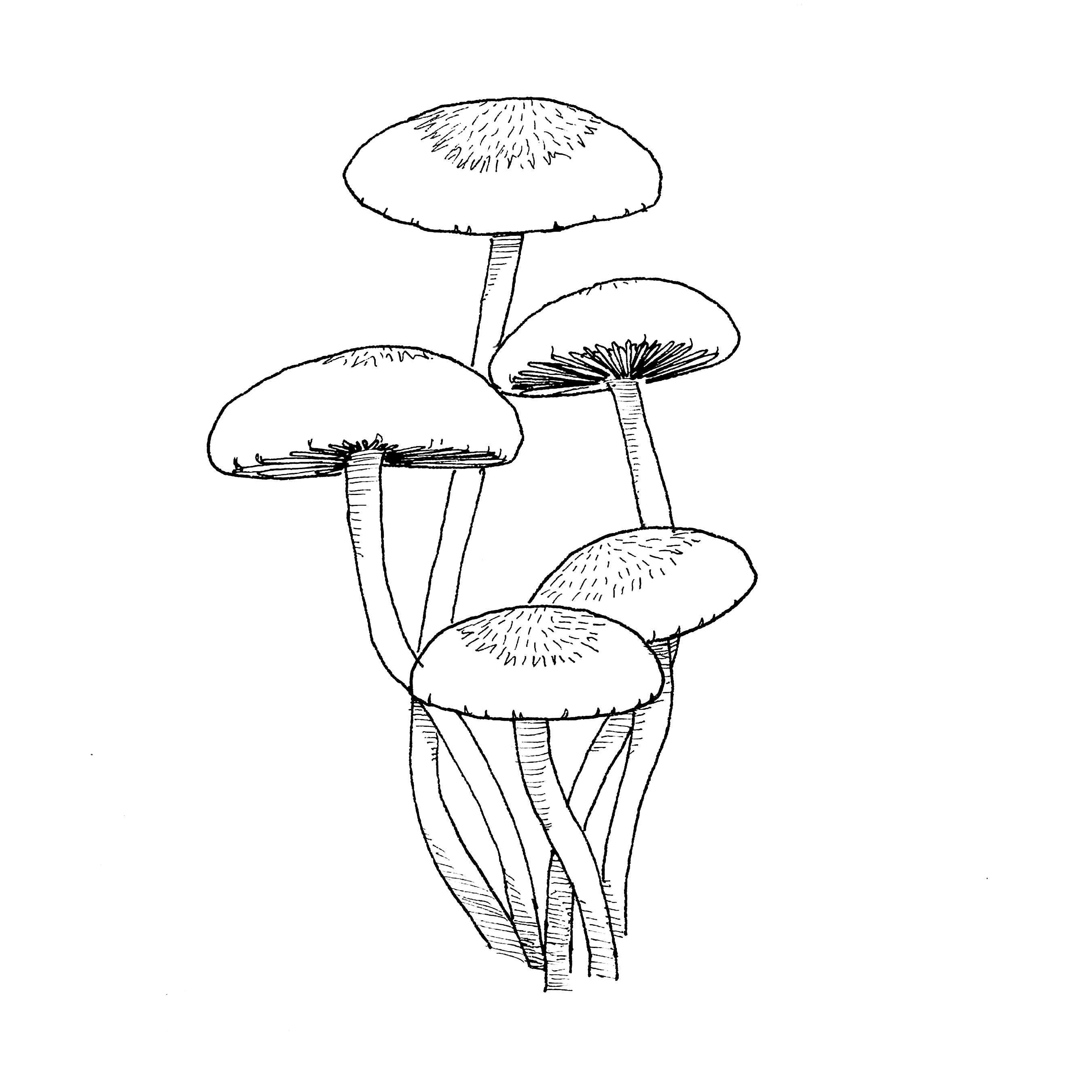
Popping up all over the land, like wild mushrooms after a spring rain,
Wild Church communities are responding to a call from deep within
to change the way we relate to the natural world, moving
“from a collection of objects, to a communion of subjects”
Thomas Berry
Sunday, January 16th, 2022
January 16, 2022Marianne Williamson:
Not every lesson feels fun while it’s happening, and at times I have resisted growth fiercely. But I remain open today to the miracle of transformation. I know that as I move forward into a new realm of being, Love itself will aid me in my progress. Spirit will erase the patterns of fear that have sabotaged my past.
“Freedom without consequences is a myth.
Our actions always have consequences.
The question is: who will bear them?” -Seth Godin
From https://www.suleikajaouad.com newsletter this week.
Suleika, your name is on my alter as you continue to ease back into health. February v i b e s strong. Only love and healing and wholeness. -dayle
“When you’re suffering—enduring some kind of rage or heartbreak, disappointment or plain human idiocy—it can feel like you’re alone, like you’re the only person who’s struggling this way. Often, the impulse in those moments is not to share or create but to hide.”
-Suleika Jaouad
Diving deeply into a dynamic unity, Father Richard Rohr writes:
In the early Christian era, only some few Eastern Fathers (such as Origen of Alexandria and Maximus the Confessor) cared to notice that the Christ was clearly something older, larger, and different than Jesus himself. They mystically saw that Jesus is the union of human and divine in space and time, and the Christ is the eternal union of matter and Spirit beyond time. But the later centuries tended to lose this mystical element in favor of dualistic Christianity. We lost our foundational paradigm for connecting all opposites.
Since we could not overcome the split between the spiritual and the material within ourselves, how could we then possibly overcome it for the rest of creation?
The polluted earth, extinct and endangered species, tortured animals, nonstop wars, and constant religious conflicts have been the result. Yet Jesus the Christ has still planted within creation a cosmic hope, and we cannot help but see it in so many unexplainable and wonderful events and people.
For more and more people, union with the divine is first experienced through “the Universal Christ”—in nature, in moments of pure love, silence, inner or outer music, with animals, or a primal sense of awe.
Our encounter with the eternal Christ mystery started about 13.8 billion years ago in an event we now call the “Big Bang.” God has overflowed into visible Reality and revealed God’s self in trilobites, giant flightless birds, jellyfish, pterodactyls, and thousands of species that humans have never once seen. But God did. And that was already more than enough meaning and glory.
From journalist and former CBS news anchor Dan Rather today:
Steady is about taking the world as it comes, trying to control what you can but recognizing much is beyond your ability to shape. It is about joining with others to leverage the power of collective action. It is about caring for yourself when you need to regain your footing. It’s about understanding that others have struggled in the face of injustice and despair. Steady is about recognizing that progress is possible, even when it feels ungraspable. It is also about having the humility to understand that joy can be fleeting, so you need to find it and hold on to it when you can.
I don’t know what the next year holds in store, for me, for you, or for our country and our planet. I hope it is one of greater justice, peace, and health. I know that it will undoubtedly be one of challenges, in ways we can predict, and in ways that are unknowable.
Emerson:
God offers to every mind its choice between truth and repose. Take which you please…you can never have both. […] There is no history. There is only biography.
“Caution is like a disease, it kills ideas. Be daring. And caution will disappear.” -Yoko
Radical Transformation
January 15, 2022“Being fully present to what is happening in the world is a radical act that can transform grief into action.”
YES! Magazine
By Dahr Jamail
In this excerpt from the new anthology “A Wild Love for the World: Joanna Macy and the Work of Our Times,” journalist Dahr Jamail describes how Macy and her work helped him survive profound war trauma and climate grief.
Macy, a scholar and teacher of Buddhism, systems thinking, and deep ecology, is the author of 13 books and a respected voice in movements for peace, justice, and ecology. She originated The Work That Reconnects, a framework and methodology for personal and social change. It is influential work that, in the face of overwhelming social and ecological crises, helps people transform despair and apathy into constructive, collaborative action.
[…]
During one of Joanna’s discussions, she said, “The most radical thing any of us can do at this time is to be fully present to what is happening in the world.” For me, the price of admission into that present was allowing my heart to break. But then I saw how, in the face of overwhelming social and ecological crises, despair transforms into clarity of vision, then into constructive, collaborative action. “It brings a new way of seeing the world, freeing us from the assumptions and attitudes that now threaten the continuity of life on earth,” Joanna said.
[…]
There is more and more social hysteria, greatly aided by the corporate media and its finger-pointing and scapegoating. On one hand, you have the mass shootings, and on the other, a deathlike closing down under the pressures of the moment when you need to just get food on the table.”
Illustration by Benjavisa Ruangvaree.
I felt like little more than a typist for Gaia as the feelings and words flowed out of me, as I bowed to and held in reverence our magnificent planet. With each passing day, it became clearer to me that my work was truly in service to the planet, each chapter an homage to her. And along the way, she brought in Native American elders, which literally changed the ending of the book I had prepared. It was due to my training with Joanna that I knew what was happening and allowed myself to be Gaia’s instrument.
No matter how difficult life on Earth becomes, we will only be able to withstand these times by sharing ourselves with one another. If nothing else, we can bear witness together and not suffer in isolation as the dominant culture prefers. In being a “we,” humans can live as the deeply interconnected consciousness of Earth that we already are, just as Joanna has taught all of her life.
Yes. But what is the ‘we’ now? We are no longer deeply connected, only ideology connected and fractions are deep within each. Jesus spoke of ‘thou’, you, but contemporaneously it is only ‘me’ and perspectivism. ‘We’ know what needs to be done, but can ‘we’, will ‘we’? Hope is nothing more than a gamble, and we have no more chips.
R A D I C A L T R A N S F O R M A T I O N
…desperately needed, as ‘we’ exist in a state of radical uncertainty.
Saturday, January 15th, 2022
Absolute
Reciprocity
Ineffable
Perspectivism
Thinking this morning, journalism doesn’t exist, not really, not in a pure sense. Journalism is corporate owned media and social media.
Absolute?
No qualification, restriction, or limitation; not viewed ion relation to other things or factors.
Reciprocity?
Mutual benefit.
Ineffable?
Too great or extreme to be expressed.
Perspectivism?
Knowledge of a subject is inevitably partial and limited by the individual perspective.
Yes. Journalism is absolute, reciprocity exists for profit and attention, the evaporation of democracy and planet is ineffable, and all of it loaded with bias and perspectivism.
A free press is the foundation of a democracy, and in this country, the United States, as in others, it is state owned, corporate owned, billionaire owned, and not free.
We are drowning in seas of misinformation and disinformation. No one knows how to rescue our collective, or want to (?), only observing as we breathe our last breath.
Julian of Norwich:
“She took advantage of the crisis to explore more deeply what her soul and heart truly desired and was capable of.”
Howl. Go ahead.
January 14, 2022
Full Moon in Cancer is Monday, January 17 at 4:50PM Mountain Standard Time (MST)
Also known as the Wolf Moon, this full moon suggests a deeply emotional time giving opportunity for some serious emotional clearing of pent up frustrations, past disappointments, regrets, judgments and feelings about what has or has not happened. It is a good time to sort out the difference between your mental thoughts and judgments and the true nature of your emotional center and what it holds.
This year (2022) is an emotionally centered year and we see it anchored in this full moon. Since the theme of January is about values and what is important, this will also be highlighted during the full moon window.
Beware of self-judgment around what you should have paid more attention to or put more energy into. What is past is past. Clear the emotions around it and move on. This is also a good time to receive the higher emotional energies of gratitude, love, awe, beauty and inspiration. Do some self-care during this time that includes some higher-centered possibilities. Since Mercury is now retrograde, this is a time for more being rather than doing and a good time for reflection and study of where your true power comes from. What is important to you? What do you value? What do you love? What do you love to do and where do you love to be? And with whom?
Blessings,
LenaPowerPath.com
🌕
Marianne Williamson:
Today I choose the light, and turn away from darkness.
I know there is a force within that lures me toward the light, yet there is a competing force within me that would keep me bound to darkness. May the love of God cast out the fear that is lodged inside my consciousness, and deliver me to peace. May the light of love cast out all fear and darkness in my mind.
CQ
January 12, 2022CB radio
“It was huge and kept growing by leaps and bounds.
Until it didn’t.
(My license was KFV2338, a number I haven’t said out loud in 40 years).
CB radio took off because human beings desperately want to connect with people they know and be heard by people they don’t.
And then it went away because it was noisy, unfiltered and sort of pointless.
We can’t imagine why people were so entranced.
Until the next one comes along.
It was huge and kept growing by leaps and bounds.
Until it didn’t.
(My license was KFV2338, a number I haven’t said out loud in 40 years).
CB radio took off because human beings desperately want to connect with people they know and be heard by people they don’t.
And then it went away because it was noisy, unfiltered and sort of pointless.
We can’t imagine why people were so entranced.
Until the next one comes along.”
Here’s mine: KG7HAK
Breaker Breaker. :)
Wednesday, 1.12.22
Father Richard Rohr
Center for Action and Contemplation
Once we allow the entire universe to become that alive and dynamic, we are living in an enchanted world. Nothing is meaningless; nothing is able to be dismissed. It’s all whirling with the same beauty, the same radiance. In fact, if I had to name the Big Bang in my language, I’d call it the Great Radiance. About 13.8 billion years ago, the inner radiance of God started radiating into forms. All these billions of years later, we are the continuation of that radiance in our small segment of time on this Earth. We can either allow it and let the Infinite Flow flow through us, or we can deny it, which is really what it means not to believe.
This is not something I can prove to anyone. This is nothing I can make logical or rational. It’s only experiential, and it’s only known in the mystery of love when we surrender ourselves to it, when we grant the other inherent dignity and voice—the plant, the animal, the tree, the sky, Brother Sun and Sister Moon as my Father Francis of Assisi put it.
Beguines, the ‘world’s oldest women’s movement…’
NYTIMES
Some historians believe they banded together after losing their men to the Crusades, which left behind mainly criminals and louts — beguines were not confined to the cloister. Many ministered to the poor and sick outside their walls. Lifelong celibacy was not required either. They could leave the order and marry (but not return).
Traces of these remarkable women and their idiosyncratic spiritual ways can be found today in the urban islands of quietness they once called home. Known as beguinages or begijnhofs, several dozen of these compounds are still intact (to varying degrees) from England to Germany. Ten years ago Unesco declared a select group as World Heritage Sites. No country has more beguinages (29) than Belgium, and a trip to inspect a few in three cities seemed like a pleasant way to spend a spring day, especially given the ease with which one moves by train in that convenient nation.
In its modesty, this beguinage is reminiscent of a poorly endowed college at Oxford. The bourgeois values of peace and tidiness govern all beguinages, elements that look forward to the airy clarity of the Enlightenment rather than back to the Gothic sublime of the Middle Ages.
These were “independent women who defined for themselves what it meant to live according to gospel values. Beguines were not nuns. They used their sources of income to purchase homes near the chapel or parish church where they gathered together for prayer. They emerged in the midst of a so-called first renaissance when European society was transforming itself from a narrowly defined structure of a great many peasants.
Several factors propelled this renaissance and supported the emergence of the beguines, including the Crusades and courtly culture, emerging cities and their fledging universities, a new money-based economy, the growth of lay spirituality and the cult of the Virgin Mary, as well as new monastic orders.
Additionally, there was a phenomenon called vita apostolic, which means the ‘apostolic life’ or ‘the life of an apostle.’ Beguines were a powerful expression of the vita apostolica.
Leading profound simplicity, beguines pooled their resources in order to serve the sick and destitute by building and operating infirmaries and almshouses.
- Hildegard of Bingen
- Heloise
- Marguerite d’Oingt
- Gertrude of Helfta
And many women became beguines as a result of their newfound literacy.
A heretic is a person who allegedly corrupts established faith doctrine, often by selecting a limited set of beliefs and denying the other parts of orthodox teaching.
It was a highly charged political environment in the medieval world.In a society strongly defined by each person’s specific place (such as belonging to the guilds or merchants, to aristocratic or religious classes or the the peasantry), beguines were violating their ‘God-assigned place’ in order to serve the gospel.
Beguines were under church investigation at different ties and in different parts of Europe for their spiritual independence.
While most beguines were quite orthodox, there were some religious laywomen who did join the Cathars, the Free Spirits, The Spiritual Franciscans, and other suspected heretical movements.
Most challenges of heresy, however, were politically motivated. When beguines challenged inept clergy, they made priests and bishops angry. When beguines condemned the red and corruption within the church, they made the church hierarchy angry. When beguines denounced the cruelty done to innocent laypeople through interdict, they made the popes angry. Beguine preaching would always make some men in power angry.
Beguines showed great strength and persistence and collaborated with fellow seekers, tolerated diversity, and raised difficult questions; they exercised both communal and personal wisdom and freedom to follow God as they felt called.
The story of the beguines affairs that women have contributed far more to spirituality and culture than history books have traditionally acknowledged. Their voices proclaim a divine presence that years for relationship with each of us.
These medieval women offer us hope and a fresh path: to think creatively, to collaborate to achieve change, and to live with prophetic courage.”
“A movement, rather than an order, there was no single style or pattern of beguine life.
While reacting against the wealth and ostentation of secular society, the beguines did not see poverty as an end in itself, rather they encouraged the development of the virtues of charity, humility and companionship.
Beguines worked in hospitals, visited the sick in their homes and established infirmaries.
As the church became increasingly paranoid concerning the presence of heterodox teachings, and brutal it its attempt to eradicate those it conceived of a threat, beguines, along with Jews, witches and various other sects, found themselves vulnerable and subject to frequent accusations of heresy, with often terrible consequences.”
~
The French mystic Marguerite Porete was burned at the stake in Paris in 1310, after a year and a half of imprisonment. Her crime was to repeatedly refuse to appear before the court of the inquisitorial commission to answer charges relating to her book, The Mirror of Simple Souls. During her trial, she refused to swear the oath required of her by the inquisitor’s office and she showed no remorse for having violated an injunction to withdraw her book from circulation after it had been publicly burned several years previously. Many who witnessed her execution were said to be moved to tears by her piety.
Little is known about Porete, apart from the record of her trial and what can be gleaned from her writings. It seems likely that she was associated with the beguines, a women’s religious movement which spread across northern Europe during the 13th and 14th centuries. Although the beguines devoted themselves to charity, chastity and good works, they took no religious vows and their lifestyles varied greatly, from solitary itinerants (of which Porete was probably one) to enclosed communities. The beguines were part of an era of vigorous spiritual flourishing during the Middle Ages. They were condemned by the Council of Vienne (1311-1312), which also condemned the Free Spirit Movement with which they were sometimes (and probably erroneously) identified. Although the beguine movement declined dramatically in the 15th century, some beguine communities survived until the early 20th century. The beguinage in Leuven in Belgium is a Unesco world heritage site, and to wander through its quiet cobbled roads and enclosed gardens is to feel a poignant sense of the lost history of women’s lives.
~
And this, by Allysha Lavino…recommend highly.
My review from 2020 for Amazon, Trust the Magic:
What did you see today?
What did you learn today?
What did you love today? (p.79)
Henry Lincoln chose to See, and now, Allysha has chosen to See with the eyes and wisdom of the Divine Feminine in The Heretic. Having both discovered their place in the universal pattern, Allysha invites us through beautiful and brilliant storytelling to find our own place through sacred geometry while meeting the Good People, the ancient Cathars, in Southern France. Reading The Heretic, I had the remarkable context of a Sacred Mystery Tour with Allysha and her husband, Mark, co-led by Sir Henry, to visit the sites revealed in the Languedoc region of Southern France. My hope is that if you’ve landed in this virtual space—”nothing is done par hazard” (p. xv)—either directed by the Divine Feminine or a passionate friend, you, too, will be called to physically explore the ruins and profound spiritual places Allysha excavates in the pages of The Heretic. If not, this book will be your experience. Allysha has magically captured through character and compassion the Wisdom resting beneath all things, the dualism of good and evil. During this time of pandemic and global social sadness, Allysha reminds us through her ancient research and inspired writing that suffering cannot destroy us, beauty is in everything, “though the world around us was filled with the shear chaos of the unknown” (p. 217). She gently encourages us in her story to “trust the magic,” as she gathers what Emily Dickinson called the fruits of the spirit: patience, kindness, gentleness and self-control. It is Lily’s discoveries along with her young ethereal guides at the old hotel in Alet-les-Bains who encourage us to charge the awakening. I didn’t want this book to end—gratitude to Gaia it is a trilogy! Allysha, “thank you for your wisdom…your joy…your peace…your guidance…your strength…your love (pp. 265-266). As Henry writes in his Forward, “The world has been preparing Allysha for this task for years, unbeknownst to either of us.” Baphomet, friends…the path awaits.
Author Beatrice Bruteau [1930–2014]: “We need a new theology of the cosmos, one that is grounded in the best science of our day, so that all the world turns sacred again.”
-Dayle Ohlau
10 years…maybe less.
“Our life is frittered away by detail. Simplify, simplify, simplify! I say, let your affairs be as two or three, and not a hundred or a thousand; instead of a million count half a dozen, and keep your accounts on your thumb-nail.”
-Henry David Thoreau
YES! Magazine
When Less Is More
by David Korten
“Science tells us that we now have fewer than 10 years to reduce the human burden on Earth or trigger tipping points in Earth’s natural systems from which there is no return. Most discussion centers on the climate emergency, but we also have crises related to air, water, soil, species extinction, and more.
A viable human future depends on living with less. Does that mean sacrifice? Leaving more people behind? Or is this challenge an unprecedented opportunity to achieve a better future for all? The question of how much is enough, the theme of the fall 2021 issue of YES! Magazine, poses a foundational question for our time.
Let us look at several key areas where less could be more.
- Deadly Weapons.
- Mis-/Disinformation.
- Financial Speculation.
- The Bitcoin Con.
- Global Supply Chains.
- Short Stay Air Travel.
- Auto-Dependent Cities.
We face a defining choice. We can hold to course with an economy that grows GDP to provide a few with the opportunity to make a killing as they prepare to escape to outer space. Or we can embrace the current opportunity to transition to an ecological civilization, with a living economy dedicated to supporting us all in making a secure and fulfilling living on a thriving living Earth.”
Full Piece: yesmagazine.org
~
How Much Is Enough?
YES! Magazine
by, Lornet Turnbull
Rebecca Rockefeller and Liesl Clark envisioned back in 2013 when they created Buy Nothing—a gift economy operated on a hyperlocal scale to bring neighbors together through sharing and community.
Neither a group, organization, association, or nonprofit, Buy Nothing is a movement that has doubled in size during the pandemic. It now has more than 4 million participants in 6,500 groups, located in 44 countries across the globe.
“It’s like a radical new economy, except of course it’s an old economy that has been around forever,” Rockefeller says. “We’re just re-presenting it.”
“Here we were studying this very old culture, up to 3,000 years old, while at the same time seeing that the modern folks were using their materials in a way that was so beautiful and eye-opening,” she adds. “The only way these cultures could survive was literally by always ensuring that the weakest were carried along with them.”
[Barter Economy/Wikipedia Image]
